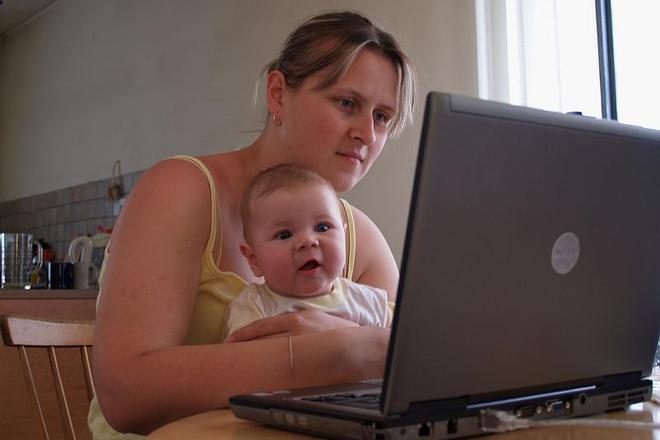Denník N reporter Monika Tódová, whose husband Mirek Tóda also writes for the daily, was recently visited in her home by a social worker.
“A field worker of the Labour, Social Affairs and Family Office just visited me at home," Tódová wrote on her Facebook page on July 13. “He was trying to contact me, as he got an order to make a random inspection of how I care for the children.”
The head of Labour, Social Affairs and Family Office (ÚPSVaR) chose her from the database, and such a random inspection is done once every six months, the social worker explained. “I don’t know why he sent me here. I am hardly ever sent for random checks,” the social worker said, adding that he had last been sent on a field visit during 2016.
He was sent to see who takes care of the couple’s children, fill in the updated data and see whether Tódová still works in the Slovak territory, he said, according to Tódová and the Omédiách.com website.
Why would a journalist be targeted?
Tódová reports on the scandals of the current cabinet, including those of the Labour ministry and the Čistý Deň (Clean Day) re-socialisation centre, which has kept its accreditation despite the recommendations of an independent committee. Tódová has been criticised by politicians and tycoons connected with the centre.
The inspection surprised her, the journalist admitted, noting its probable connection with her recent reporting on Čistý Deň. She sees no other reason for the ÚPSVaR check on her.
“I send my regards to minister [Ján] Richter and also send him the message that I still work in Slovakia and my children are well – while I don’t know if the same can be said about those in Čistý deň,” Tódová wrote on her Facebook, as quoted by Omédiách.com.
Office's reaction
“Field social workers visit beneficiaries directly in their family homes, and their task is to find out whether these resources fulfil their stated goal,” ÚPSVaR spokesperson Jana Lukáčová wrote in her reaction for Omédiách com. She also noted the Support for Development of Social Work in Family Environment project.
Lukáčová wrote that the selection of target groups for in-home social inspections is up to the individual heads of the departments of state social benefits and material need and organised at individual offices. She explained that this is to allow field social workers to gradually visit all beneficiaries falling under their office.
The office said that the visit to Tódas was a regular visit by a social worker who performs activities connected with the project and that these visits are done all over Slovakia. “In no way was there any intention – we cannot see what the intention could possibly be aimed at,” Lukáčová noted.
“Visits of field social workers can include any welfare or state contributions recipients, including publicly well-known personalities,” she said, adding for the website that they will check on the work activities of the specific field worker for this assignment, because if it is true that he made such an inspection just once in six months, then he may be fired for not fulfilling his workload.
Opposition will look into the case
The opposition, led by the parliamentary committee for human rights and ethnic minorities chair Erika Jurinová (OĽaNO-NOVA), intends to convene an extra committee session to look into the social service inspection, the TASR newswire wrote on July 14.
The opposition wants to summon Labour Minister Ján Richter and the head of the Labour, Social Affairs and Family Centre Marián Valentovič to the session to explain the conduct of their subordinates.
“Inspections by every single public institution must be carried out under precisely set rules... and not based on political orders," said Jurinová, adding that Tódová belongs among the journalists who frequently report on cases of government malpractice.
The Labour Centre claimed that such visits have been conducted by social service workers across Slovakia and that over 79,000 random inspections were performed between January 2016 and April 2017.



 Illustrative stock photo (source: Sme - Michal Trško)
Illustrative stock photo (source: Sme - Michal Trško)